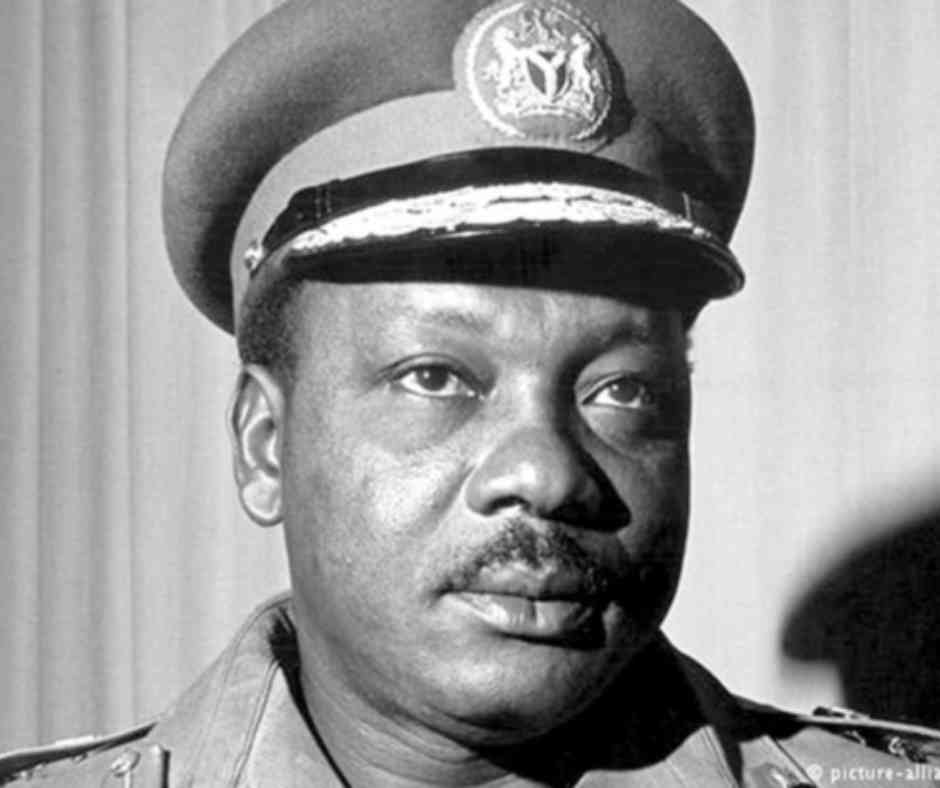Topic Content:
- Military Regime of Major General Aguiyi-Ironsi (January 15 – July 29 1966)
- Causes of the 1966 January Coup D’état in Nigeria
- Major General Yakubu Gowon (1 August 1966 – 29 July 1975)
- Reasons for Counter Coup of 27th July 1966
- Structure of Military Government January 1966 – July 1966
- Structure of Military Government under Major General Yakubu Gowon, 1 August 1966 – 29 July 1975
- Achievements of Military Government 1966 – 1975
- Weaknesses of Military Government 1966 – 1975
Military Regime of Major General Aguiyi-Ironsi (January 15 – July 29 1966):
Johnson Thomas Umunnakwe Aguiyi-Ironsi was the first military Head of State of Nigeria. He seized power during the ensuing chaos after the January 15, 1966, military coup, which decapitated the country’s leadership. Some key political leaders including, Sir Tafawa Balewa, S.L. Akintola, Sir Ahmadu Bello, Chief Okotie Eboh and many other top-ranking officers in the armed forces were killed.
On Sunday, 16 January, the Council of Ministers unanimously decided to hand over voluntarily the administration of the country, with immediate effect, to the Nigerian Army.
In taking over power on January 16, 1966, the then Head of State, General Ironsi made the following broadcast to the country.
The Military Government of the Federal Republic of Nigeria wishes to state that it has taken over the interim administration of the Federal Republic of Nigeria following the invitation of the Council of Ministers of the last Government for the Army to do so.
General Ironsi

Causes of the 1966 January Coup D’état in Nigeria:
(i) Corruption and inefficiency among the political leaders. e.g. in the award of contracts, and abandonment of projects.
You are viewing an excerpt of this Topic. Subscribe Now to get Full Access to ALL this Subject's Topics and Quizzes for this Term!
Click on the button "Subscribe Now" below for Full Access!
Subscribe Now
Note: If you have Already Subscribed and you are seeing this message, it means you are logged out. Please Log In using the Login Button Below to Carry on Studying!



Responses